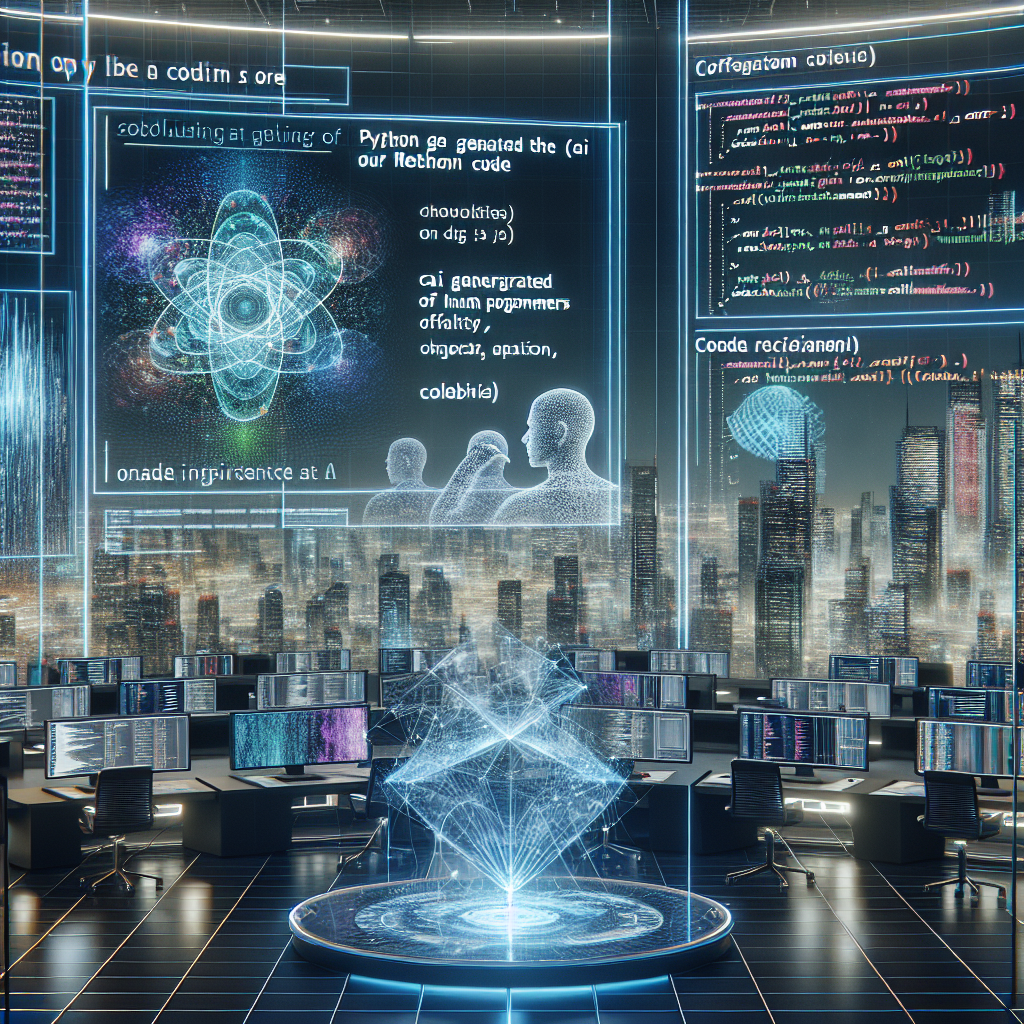Discovering the AI Fuel for a Smarter Future: How GPT-4o is Redefining Software Quality Standards

Discovering the AI Fuel for a Smarter Future: How GPT-4o is Redefining Software Quality Standards
Artificial Intelligence (AI) has made some remarkable strides in recent years, with technologies like ChatGPT leading the charge in redefining various fields, including software engineering. But what does this mean for the software products we rely on? Are AI-generated solutions truly superior to human-created ones? A fascinating study by Manuel Merkel and Jens Dörpinghaus dives deep into these questions, examining the transformational power of AI through the lens of coding platforms like LeetCode.
Unwrapping the AI Potential in Software Engineering
The AI revolution, particularly fueled by tools like ChatGPT, offers a promising outlook for multiple sectors. By leveraging a massive amount of data, these AI tools excel in generating informative and creative responses. However, the question remains: Can generative AI, like GPT-4o, produce better quality software than human coders?
The Great AI-Human Showdown on Code Quality
One of the major revelations from this study is the comparison between the quality of Python code generated by GPT-4o and that crafted by humans. Utilizing platforms like LeetCode, which host a myriad of coding challenges, the study conducted a thorough evaluation to gauge the effectiveness of GPT-4o in software development. With a focus on key indicators of software quality, such as code smells, understandability, efficiency, and runtime, the study laid out a series of hypotheses to probe deeper into AI-generated coding prowess.
How Does GPT-4o Stack Up?
-
Code Quality: A breath of fresh air, GPT-4o-generated solutions on LeetCode boasted significantly fewer “code smells” per thousands of lines compared to solutions crafted by humans. This suggests a higher level of code quality, adhering more closely to ideal programming practices.
-
Understandability: Code complexity was measured using a “cognitive complexity score,” essentially indicating how easy the code is to comprehend. Once again, GPT-4o scored slightly better, hinting that AI can streamline readability and maintainability—a crucial factor for ongoing development and debugging.
-
Runtime Performance: In a bit of a plot twist, the AI’s generated code proved faster in execution than human solutions, edging out in terms of runtime performance across a vast number of problems.
-
Resource Utilization: However, not all AI laurels held the day. When it came to memory usage, human solutions were more efficient. GPT-4o ranked below average here, underscoring a critical area for improvement in AI coding applications.
From the Lab to the Real World
These insights are not just academic musings—they have real-world implications. As AI continues to integrate into our lives, understanding its strengths and limitations when compared to human capabilities becomes paramount. For software developers, AI tools like GPT-4o can act as a robust collaborator, minimizing time spent on mundane, error-prone tasks and allowing human creativity to take charge of more complex, innovative aspects.
For coding enthusiasts or professionals working with AI in coding, this study offers a benchmark: AI can potentially elevate software craftsmanship, yet it still needs the guiding hand of human intuition to refine resource management. As AI-generated solutions become more adept, developers can focus on innovative problem-solving rather than routine execution.
Key Takeaways
-
Superior Code Quality: GPT-4o showcases a cleaner coding style with fewer errors compared to human-written code, setting a new standard in the coding community for what quality AI-driven coding can look like.
-
Understandability Wins: The AI’s ability to generate understandable code means it can facilitate better communication among developers and improve the learning curves for new developers.
-
Faster Execution: AI can effectively reduce runtime, an attractive quality for developers aiming to optimize performance, but memory usage remains a challenge.
-
Collaboration is Key: AI tools are becoming essential partners rather than replacements for humans, underscoring the need for continual improvement in AI systems to understand and utilize resources effectively.
This foray into AI’s role in software quality reveals a promising trajectory for technology, highlighting how artificial intelligence can harmonize with human expertise to redefine excellence in coding. As we embrace more sophisticated AI capabilities, understanding these nuances not only enriches our workflows but propels us toward a brighter, more efficient future.
Ready to enhance your programming practices or AI interactions? Keep these insights in mind with your next project or AI deployment to push the boundaries of what’s possible in tech innovation!
If you are looking to improve your prompting skills and haven’t already, check out our free Advanced Prompt Engineering course.
This blog post is based on the research article “A case study on the transformative potential of AI in software engineering on LeetCode and ChatGPT” by Authors: Manuel Merkel, Jens Dörpinghaus. You can find the original article here.




